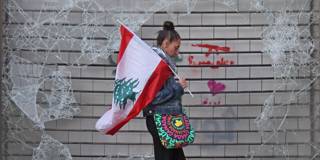Lebanon is mired in its most serious crisis since the 1975-90 civil war, and the recent explosion in Beirut is just the tip of the iceberg. Any hope the country might have of rising from its ashes will lie, as in Tunisia, in allowing local voices to ring loud and dynamic social movements to develop from the bottom up.
MADRID – “The intellectual capital of the Arab East” and “the ideal place for maximum flowering and pluralism” is how the writer Amin Maalouf, one of Beirut’s most celebrated sons, has described the city as it was in the 1960s. In his latest work, The Shipwreck of Civilizations, Maalouf charts the decline of that vibrant and resplendent Lebanon after it was razed by the same sectarianism that robbed so many countries in the Middle East of a promising future.

MADRID – “The intellectual capital of the Arab East” and “the ideal place for maximum flowering and pluralism” is how the writer Amin Maalouf, one of Beirut’s most celebrated sons, has described the city as it was in the 1960s. In his latest work, The Shipwreck of Civilizations, Maalouf charts the decline of that vibrant and resplendent Lebanon after it was razed by the same sectarianism that robbed so many countries in the Middle East of a promising future.